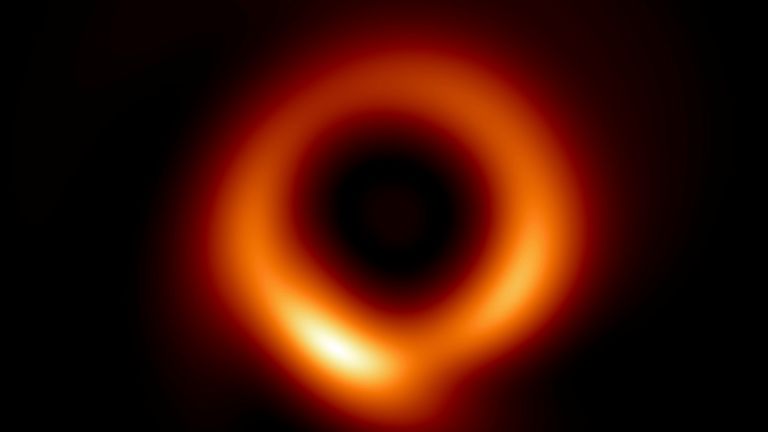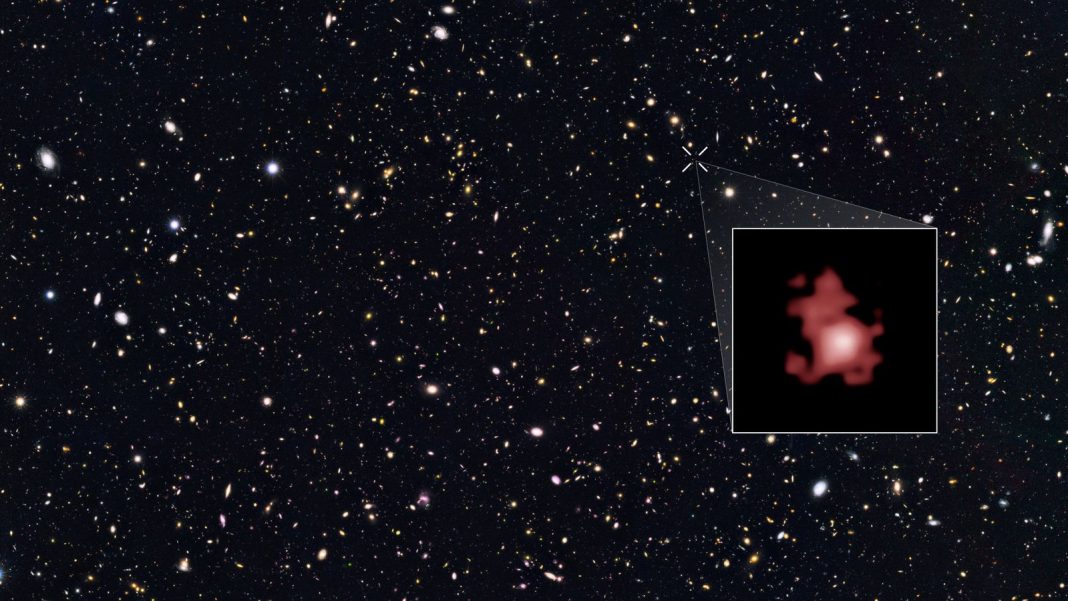Scientists say they have discovered the oldest black hole ever – and it dates back to the early universe more than 13 billion years ago.
The supermassive black hole – about six million times the mass of the sun – is so huge that it should have taken a billion years to grow to its observed size, according to current theories.
Instead, this behemoth grew just 400 million years after the Big Bang, which makes it about 200 million years older than any other known blackhole.
“It’s very early in the universe to see a black hole this massive, so we’ve got to consider other ways they might form,” said Cambridge University’s Roberto Maiolino, who led the team of scientists.
Spotted using the James Webb Space Telescope, the black hole is devouring an ancient galaxy called GN-z11, 13.4 billion light years away.
It’s gobbling up material from the galaxy at a far quicker rate than black holes from later epochs, potentially five times faster.
Astronomers estimate black holes like the one at the centre of our galaxy, the Milky Way, developed over billions of years.
‘Born big’
But the size of the latest discovery suggests some may form in other ways and could be “born big”.
“Very early galaxies were extremely gas-rich, so they would have been like a buffet for black holes,” Professor Maiolino said.
These masses form from the remnants of dead stars, according to current models, and collapse to create a black hole about 100 times the mass of the sun.
If it grew in an expected way, this newly-detected black hole would take about a billion years to grow to its observed size.

An image of the M87 black hole, which was discovered previously. Pic: AP
Like all black holes, this one is consuming material from its host galaxy, which is possibly about 100 times smaller than the Milky Way as a result.
When a black hole consumes too much gas, it pushes the air away like an ultra-fast wind, which could stop star formation and slowly kills the galaxy.
It will also kill the black hole itself, as it would cut off its source of fuel.
Read more:
Peregrine moon lander will ‘burn up’ on return to Earth
Rare solar storms could cause train accidents, scientists warn
As the black hole is so far away, it takes more than 13 billion years for the light around it to reach the Earth – which means what the scientists are observing is a scene from that long ago.
As a result, it’s impossible to know how long the mass and its host galaxy lasted.
The study detailing the team’s findings is published in the journal Nature.







